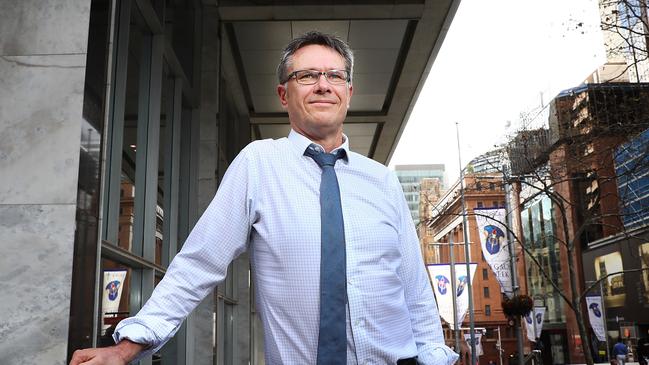Benefits replacing pay rises, says RBA
Australia’s unemployment rate may have to fall further than previously thought before wages start to grow, says the RBA.

Australia’s unemployment rate may have to fall further than previously thought before wages start to grow, deputy Reserve Bank governor Guy Debelle has warned.
Although the jobless rate has fallen to a six-year-low of 5.3 per cent, wages aren’t growing because businesses are using incentives such as gym memberships to stop workers from jumping ship to better paying jobs, Mr Debelle told a business conference in Sydney.
The RBA is grappling with stubbornly low wages growth despite record low official interest rates and healthy economic growth. Sluggish wages growth is making mortgage repayments tougher at a time when household debt has grown to record levels.
Mr Debelle said in normal situations when the economy was tracking well and unemployment was low, good workers were poached or would switch their jobs for higher wages.
But now workers were staying put after being convinced to stay at their jobs with non-monetary rewards such as “flexible work arrangements, shares [and] subsidised gym memberships”, he said.
“As the labour market has tightened, businesses are finding ways to retain some of their employees without raising wages for everyone,” Mr Debelle said.
Businesses were also more likely to limit wage rises to only the strongest performers in the company or offer one-off bonuses to retain staff, which didn’t permanently raise wages across the board, he said.
Pointing at other countries, such as the US where wages are stagnant despite the unemployment rate falling to its lowest point in 50 years, Mr Debelle said the Australian jobless rate may need to fall further than thought before wages pick up. The RBA has long estimated that a jobless rate of 5 per cent would see scarcity in the supply of workers, prompting firms to offer higher wages to attract the workers they needed.
“The aggregate unemployment rate has fallen over 1 percentage point since its recent peak in October 2014 and is now at its lowest level in six years,” Mr Debelle said. “The recent international experience indicates that the unemployment rate could decline further than historical experience would suggest before we see a material increase in wages growth.”
But Mr Debelle said a Fair Work Commission decision to give a 3.5 per cent pay rise to minimum wage workers — one quarter of all workers — would help grow wages, while there were new enterprise bargaining agreements being signed after a long period where wages had been frozen.
Although there had been strong growth in well-paying jobs such as healthcare, IT and engineering, Mr Debelle said the biggest growth was in low-paying positions such as baristas, waiters, child carers and aged carers.
He said it was difficult to ascertain how many people were engaged in the gig economy, but the share of independent contractors had changed little over the past decade. The rate of people taking up a second job was also steady at about 6 per cent of the workforce.



To join the conversation, please log in. Don't have an account? Register
Join the conversation, you are commenting as Logout